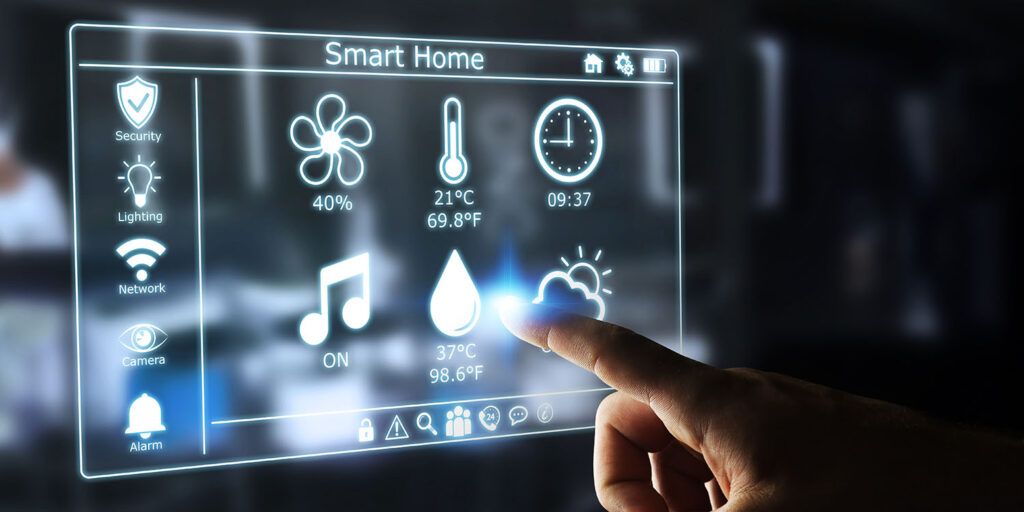
Smart home integration for seniors: Enhancing safety and independence
In today’s digital age, technology plays a significant role in shaping our daily lives. For seniors, embracing technology can open doors to enhanced safety and independence. One of the most promising advancements in this field is smart home integration. This concept not only modernizes living spaces but also makes them more accessible and secure for elderly individuals.

Understanding Smart Home Technology
A smart home is equipped with devices that connect to the internet, allowing remote management and monitoring. From lights and thermostats to security cameras and voice-activated assistants, these devices can significantly improve the quality of life for seniors. The integration of these technologies can be a game-changer, especially for those who wish to maintain their independence while staying safe.
Benefits of Smart Home Integration for Seniors
1. Enhanced Safety
Safety is a primary concern for seniors living independently. Smart home devices such as smoke detectors, carbon monoxide detectors, and security systems provide an added layer of protection. These devices can send alerts to caregivers or family members in case of emergencies.
2. Improved Accessibility
With voice-activated assistants like Amazon’s Alexa or Google Home, seniors can control various aspects of their home without needing to move around. This is particularly beneficial for those with mobility issues.
3. Health Monitoring
Smart home devices can also monitor health metrics. Wearable technology and connected devices can track heart rate, sleep patterns, and medication reminders, ensuring seniors adhere to their health routines.
Choosing the Right Smart Home Devices
When integrating smart home technology, it’s crucial to select devices that cater to the specific needs of seniors. Prioritize user-friendly products that offer intuitive interfaces and straightforward functionality. For more details, check out this comprehensive guide on best smart home hubs.
1. Smart Lighting
Smart lighting systems can be programmed to turn on and off at specific times or triggered by motion, reducing the risk of falls.
2. Smart Thermostats
These devices enable users to adjust their home’s temperature remotely, ensuring comfort without the need to physically interact with the thermostat.
3. Security Cameras
Security cameras provide peace of mind by allowing seniors and their families to monitor their surroundings. For more information on surveillance systems, explore this home surveillance integration.
Overcoming Challenges of Smart Home Integration
While the benefits are clear, integrating smart home technology can present challenges. Seniors may face difficulties in adapting to new technologies. Therefore, it’s essential to provide adequate support and training to ensure they maximize the benefits of these devices.
1. Technical Support
Providing ongoing technical support can alleviate the stress associated with learning new technology. Many companies offer tutorials and customer service to assist in the setup and troubleshooting of smart home devices.
2. Privacy Concerns
With increased connectivity comes the risk of data breaches. It’s important to educate seniors about securing their networks and devices. For tips on securing smart home networks, visit this network security guide.
Future of Smart Home Technology for Seniors
The future of smart home technology holds even more potential for seniors. Innovations in AI and IoT continue to evolve, promising greater integration and ease of use. As these technologies become more advanced, they will likely offer even more benefits to seniors, further enhancing their quality of life. For insights into AI’s role in smart homes, check out this article on AI in smart home systems.
Conclusion
Incorporating smart home integration for seniors is a worthwhile investment in their safety and independence. By embracing these technologies, seniors can enjoy a higher quality of life while maintaining their autonomy. As technology continues to advance, the opportunities for enhancing senior living will only grow, making smart homes an integral part of the future.

FAQs
- What is smart home integration? Smart home integration involves connecting devices within the home to the internet, allowing for remote control and monitoring.
- How can smart homes improve safety for seniors? Smart homes enhance safety through devices like security cameras, smoke detectors, and emergency alerts systems.
- Are smart home devices difficult for seniors to use? Many smart home devices are designed with user-friendly interfaces, making them accessible for seniors with varying levels of tech-savviness.
This article contains affiliate links. We may earn a commission at no extra cost to you.